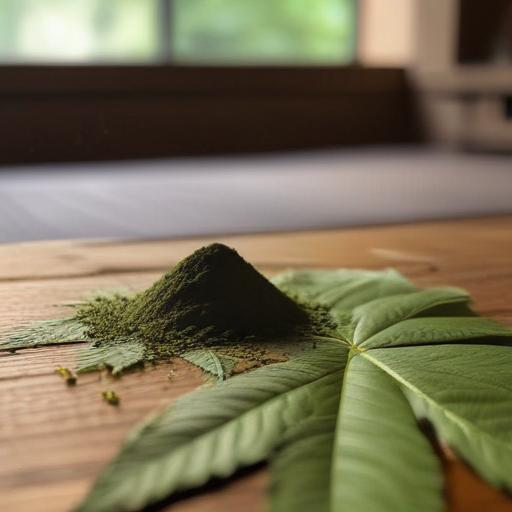Kim Maloney, a mother from Ohio, found herself grappling with a severe addiction to kratom after seeking a natural energy boost. In 2021, encouraged by a trusted friend, she purchased a kratom-based tonic from a local CBD store, mistaking it for a harmless, all-natural supplement. However, Maloney’s casual usage quickly escalated into a debilitating addiction, leading her to consume more than 10 kratom drinks per day, which resulted in dire consequences for her health, relationships, and finances.
Maloney’s life deteriorated to the point where she lost her car, house, and even half her body weight, eventually weighing only 70 pounds. In 2024, with her health in rapid decline due to conditions like pancreatitis and shingles, she finally sought rehabilitation, crediting her daughter’s ultimatum with saving her life. “I was dying,” Maloney recalls.
Her story reflects a broader trend, as USA TODAY interviewed over 20 individuals who, like Maloney, became severely addicted to kratom. Many shared how they initially regarded kratom as a wellness supplement or an alternative to alcohol, leading them to underestimate its addictive potential. Medical experts warn that kratom, often marketed as a natural product, carries significant risks for addiction and might create troubling parallels to other controlled substances.
Despite its dangerous effects, kratom products are still legally available in many states, including California. Recently, actions taken by the Food and Drug Administration (FDA) and Health and Human Services Secretary Robert F. Kennedy, Jr. indicate a potential shift in regulatory practices regarding kratom and its more potent derivative, 7-Hydroxymitragynine (7-OH). The FDA is working to categorize 7-OH as an illicit substance, which could potentially enhance consumer safety.
The response from companies producing kratom products has started to change as well. Botanic Tonics, the maker of the popular Feel Free tonic, faced scrutiny for its marketing and recently settled a class-action lawsuit alleging misleading claims about the safety of its kratom tonic. In response, the company now includes a warning on its label about the potential for habit formation.
Individuals who have struggled with kratom addiction are sharing their experiences online, and platforms like the “Quitting Kratom” subreddit are becoming vital resources for those seeking help. The community has grown significantly, with members documenting their challenges and recovery efforts.
Success stories, such as Maloney’s, bring a glimmer of hope amid the challenges posed by kratom addiction. Since entering rehab, she has regained her health and rebuilt her relationships, expressing optimism for the future despite her financial struggles. “I’m coming back,” she affirms. “I got my life. I got my kids. I got more than anybody could hope for.”
While the journey to recovery can be difficult, maloney’s experience and the awareness being raised about kratom may help others recognize the risks and seek help before it’s too late. For those affected by substance use disorder, resources are available through the Substance Abuse and Mental Health Services Administration (SAMHSA).
